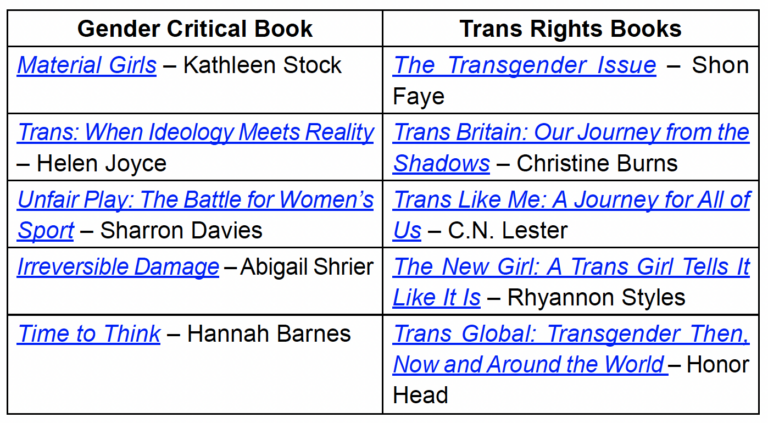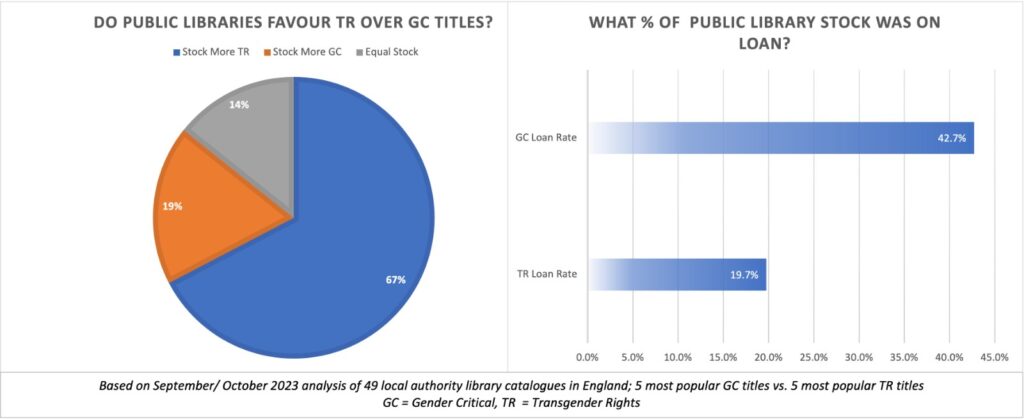The Free Speech Union randomly selected 49 English local authorities with searchable online library catalogues and searched them for 10 books – five titles written from a gender critical (GC) point of view and five from a trans rights (TR) point of view. We found that the libraries in our sample stock more TR books overall and stock more TR texts than is justified by the low demand from members of the public to borrow these titles and not enough GC titles, given the much higher demand for them.

(Please see full briefing document for clickable hyperlinks)
Libraries stock more TR than GC books overall
– More than two thirds of the 49 local authority library catalogues list more TR books than GC books. Less than 20% list fewer TR than GC books and 14% list the same number of each. Two local authorities, Enfield and Wigan, had no record of any of the GC titles in our sample while every library stocked at least one TR title.
– On average, local authorities bought 63% more copies of TR books than GC books.
– Trans: When Ideology Meets Reality by Helen Joyce was the most stocked GC title (83 copies overall) and The Transgender Issue by Shon Faye was the most stocked TR title (191 copies overall). Even though the percentage difference between the number of TR and GC copies reduces to 34% when we exclude these two titles, the bias remains in favour of TR texts.
Library stock levels favour TR books disproportionate to public demand
– At the time the data was collected, 43% of the GC titles were on loan compared to just 20% of the TR books. This suggests that library stock policies are more than matching demand for TR books, while potentially failing to meet demand for GC books.
– 51% of the copies of Hannah Barnes’ GC title Time to Think were on loan at the time of sampling (the highest on loan rate in the dataset). Yet at 1.6, the average number of Barnes’s title being held by each local authority was less than half of that for the most popular TR author, Shon Faye (3.9 books per local authority).
– Shon Faye’s The Transgender Question was the most popular of the TR books with 34% of its copies on loan at the time of sampling. When The Transgender Question is excluded from the TR sample, however, the percentage of TR books on loan falls to just 9%.

We conclude there is a clear bias in England’s local authority libraries in favour of TR books and against GC books and the source of that bias is the Chartered Institute of Library and Information Professionals (CILIP), the professional association for librarians which has been captured by critical social justice ideology, and an LGBT activist group called Book 28. Like many of our institutions, these public libraries are losing sight of their original purpose – which was to serve the public in a politically neutral way – and embracing an ideology imported from the United States which prompts them to come down on one side of current political debates.
The Free Speech Union
85 Great Portland Street
London W1W 7LT
+44 020 3920 7865


